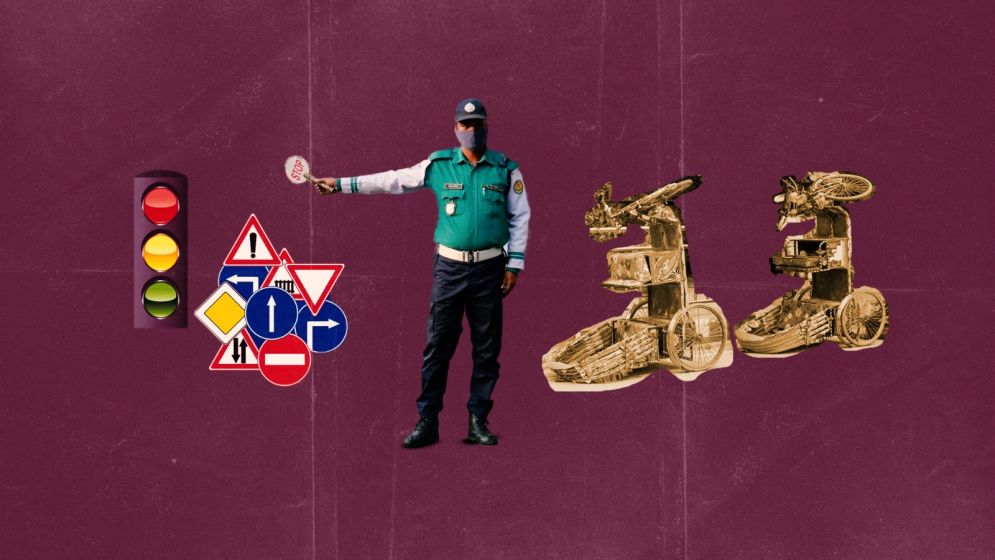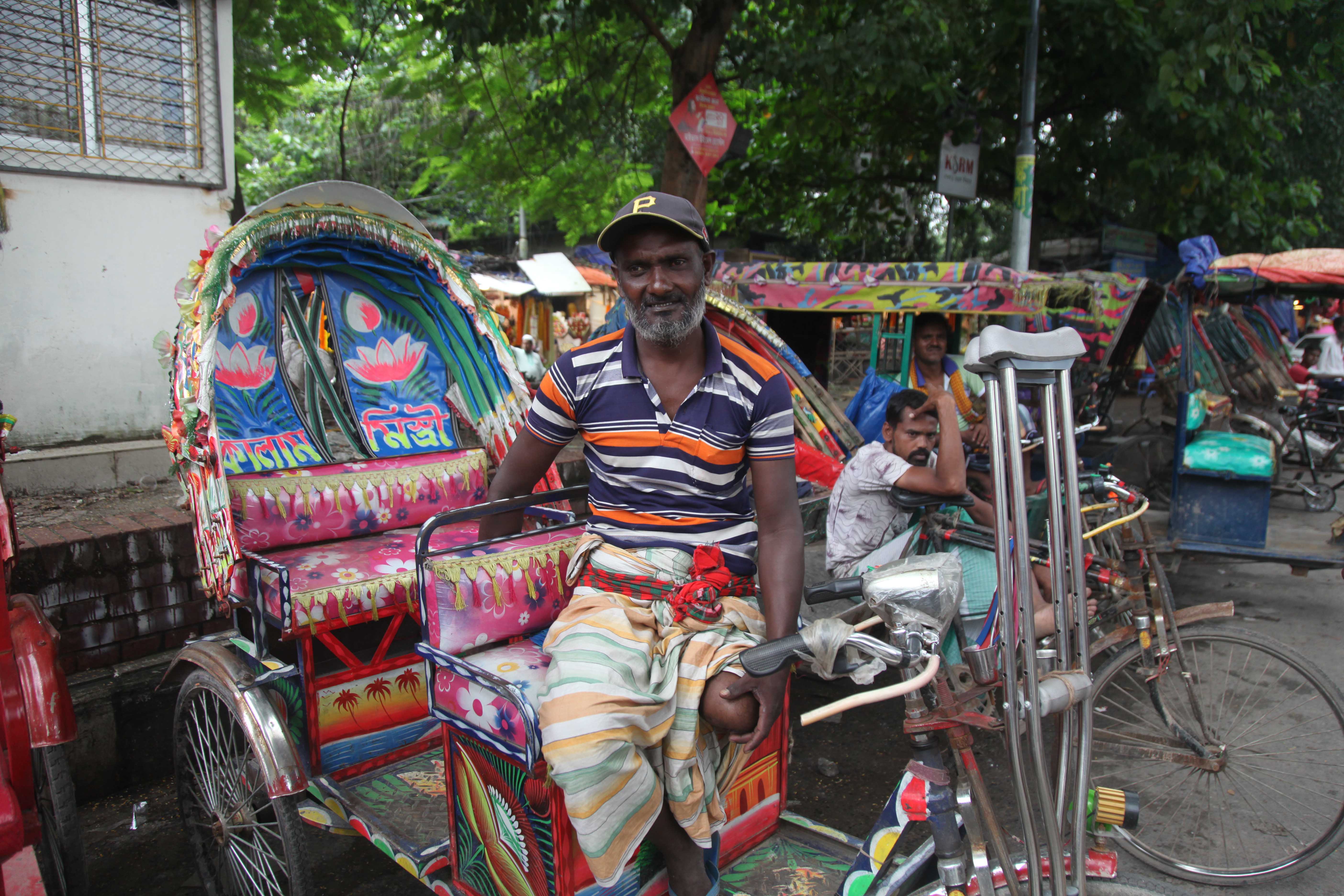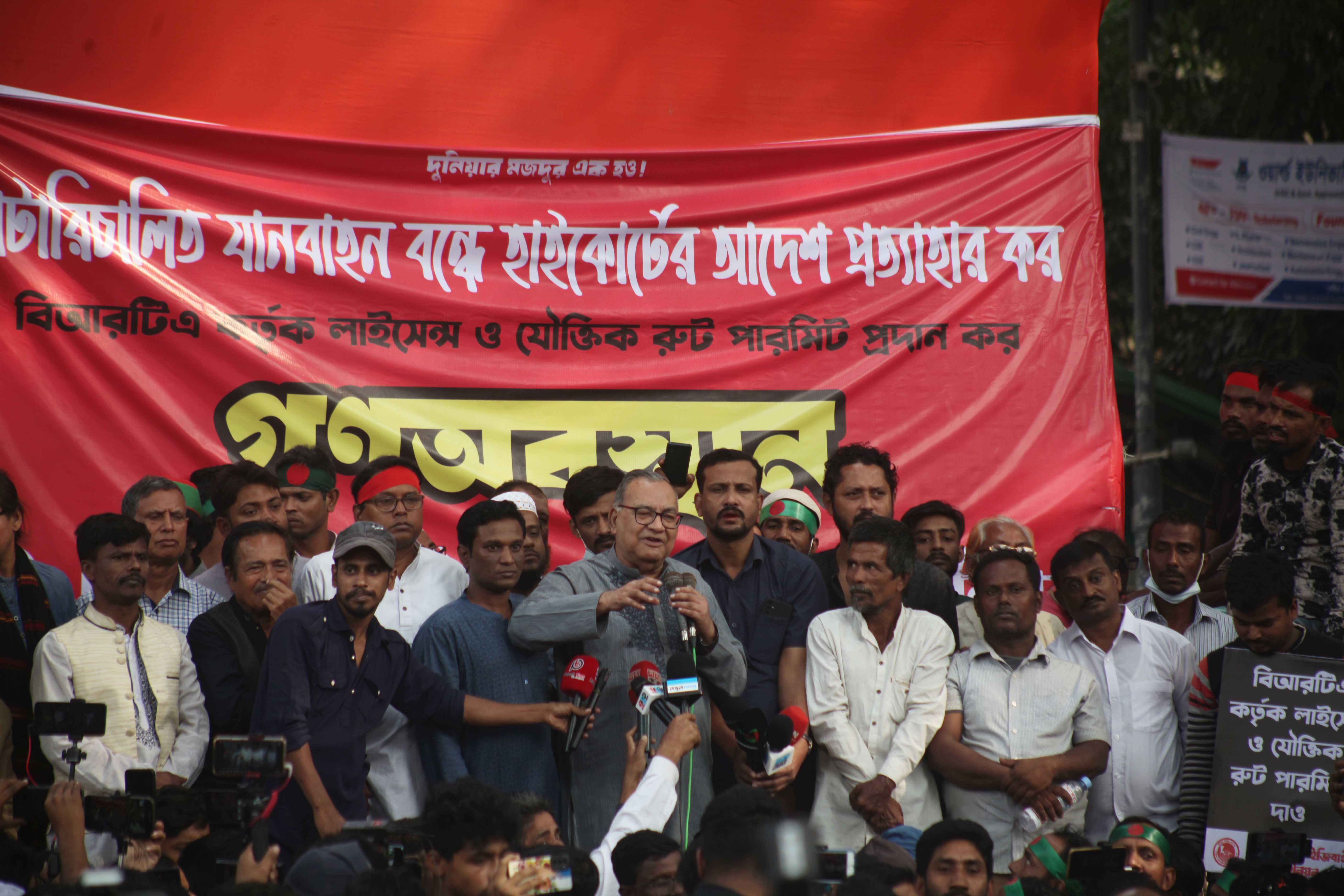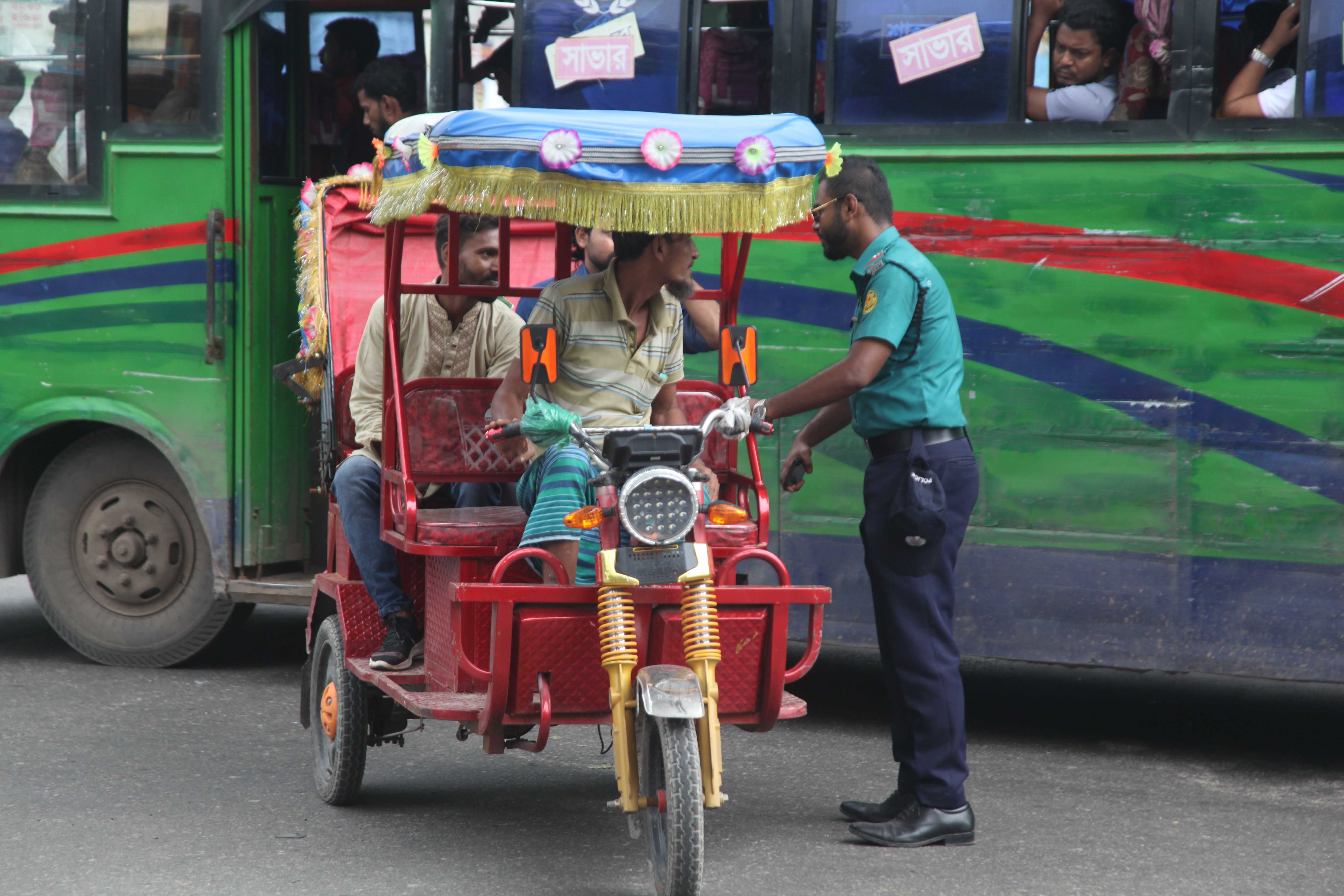‘Banglar Teslas’ aren’t the problem….the system is

Once upon a time, barbers did more than trim beards–they lanced boils, too. One such barber in a small town was so adept at the practice that he began to draw more patients than the local doctors themselves.
Alarmed at their dwindling clientele, the doctors held a meeting. Some suggested banning the barber, others proposed handing him over to the police. But an elder among them offered a subtler plan: don’t crush the competition–reform it.
So they went to the barber, praised his skill, and suggested he undergo formal training. Flattered, the barber agreed. But after a month of medical instruction, he could no longer bring himself to lance even the simplest boil.
"What if I cut a vein?" he worried. His hands trembled. His once-instinctive confidence was gone. Patients fled. The doctors, of course, were pleased.
This quaint tale is not as distant from modern policy as it might seem. Because today’s overregulated, under-thought-out attempt at reform isn't targeting a barber– it’s targeting Bangladesh’s so-called “Teslas”: the millions of battery-powered auto-rickshaws that have overrun our streets.
By the most conservative estimates, there are 4 to 5 million e-rickshaws operating across the country, with nearly a million in Dhaka alone. The situation has reached such absurd proportions that it doesn’t require data to confirm it– one simply has to glance at any street corner, where long lines of idle autos queue for passengers that rarely come.
These vehicles were introduced as a more efficient, modern alternative to the traditional paddle rickshaws. But like the ill-fated barber, the industry is now paralyzed by its own unregulated expansion and the heavy hand of misguided intervention.
What was once a means of empowerment and income has collapsed into oversupply, underemployment, and quiet desperation.
Where drivers once took home 2,000 to 3,000 taka a day, many now scrape by with less than half of that–victims not of competition, but of policy failure. No urban planning, no regulatory foresight, and no market ceiling. Only chaos masquerading as modernity.
The so-called “civil society” mocks these vehicles as nuisances– "Teslas" in name only. But such snobbery masks a deeper crisis.
Many tend to conveniently forget that this is not just about traffic congestion or aesthetics. It's about the lives and livelihoods of millions who depend on these autos, introduced into a system with no safeguards, no strategy, and now, no dignity.

Real time, real observations
I live in Basila–practically at the heart of Bangladesh’s e-rickshaw reality. Garages, makeshift factories, and drivers surround me–not as abstract symbols in policy papers, but as neighbors, breadwinners, and human beings navigating an economy that both enables and fails them.
After years of observing, conversing, and experiencing life in this ecosystem, one truth is clear: the e-rickshaw revolution was inevitable, and perhaps even necessary–but its unmanaged growth now threatens the very communities it once uplifted.
Let me be clear: I support a controlled and regulated model of e-rickshaw transport. In the 21st century, the continued use of paddle-driven rickshaws– a brutally manual form of labor– is inhumane.
No nation aiming for digitalization, development, or dignity should accept a future in which men must pull other human beings by force of foot. If we can electrify everything from washing machines to luxury SUVs, surely we can modernize the lives of those who power our most essential urban mobility networks.
But modernization without management is a recipe for disorder. And what we now face is an ungoverned flood of e-rickshaws choking the roads of Dhaka and beyond.
Let’s break this down.
E-rickshaws have democratized access to income in ways few government programs ever could. They’ve reduced fares, increased the speed of intra-city travel, and provided dignity and opportunity to people historically excluded from the labor force — including the elderly, the physically disabled, and students seeking to fund their education.
Where paddle rickshaws demand sweat and stamina, EVs offer a more humane alternative.
They’ve also been instrumental in easing the day-to-day lives of women, children, and the elderly, especially in residential areas poorly served by public transit.
Most importantly, e-rickshaws have created an informal credit ecosystem–through NGOs and garages– that allows people to acquire vehicles, repay loans, and climb out of poverty through daily labor.
To ignore this is to ignore the very real socio-economic engine powering much of urban and peri-urban Bangladesh today.
Yet, like all unregulated booms, the e-rickshaw explosion has come with consequences.
Accidents are on the rise, as untrained and often underage drivers take to the streets in modified vehicles capable of unsafe speeds. The roads are saturated– not because the vehicle is inherently bad, but because the state failed to anticipate or regulate demand.
Oversupply has cratered daily earnings, turning a symbol of opportunity into a trap of diminishing returns.
Then there are the systemic issues: illegal electricity tapping for overnight charging, an exodus of labor from agriculture and manufacturing to the informal transport sector, and a growing energy strain on the national grid–all worsened by the absence of licensing, route planning, or zoning.
But the critics often stop there. They fail to ask why people abandon fields for rickshaws, or why illegal charging became the norm. The answer, predictably, lies in policy vacuum– not public irresponsibility.

A clear-eyed look at the facts
Let’s start with a basic fact: electric vehicles are not going away. Nor should they. Across the globe, EVs are heralded as the future–cleaner, quieter, and less carbon-intensive. Governments pour billions into EV subsidies for wealthy consumers to electrify luxury sedans and SUVs.
Yet when the poor electrify a rickshaw–out of necessity, not convenience– suddenly, it's a problem. The double standard is galling.
We must recognize e-rickshaws as a logical, even inevitable, evolution of the outdated, exploitative paddle-driven rickshaw. They deserve protection–on the same roads and in the same spaces where their human-powered predecessors once operated.
Millions of people in Bangladesh depend on these vehicles: some for transport, many more for survival. Banning them, without viable alternatives, won’t solve the crisis. It will only deepen it–by criminalizing the poor and further eroding public respect for the rule of law.
That said, regulation is essential. But it must be realistic–not a bureaucratic racket masquerading as reform. Proposals for mandatory EV licensing sound promising until you look at the precedent.
In Dhaka, registering a CNG vehicle–which costs around 8 to 10 lakh taka– requires paying 30 to 35 lakh taka in bribes, permits, and illegal transfers. Officially, the government has halted new CNG licenses altogether, creating a black market where old, decommissioned vehicle licenses are sold under the table by officials for massive profit.
If this is the model for EV regulation, then it’s not regulation at all–it’s extortion. Licensing schemes in corruption-plagued systems become less about order and more about rent-seeking.
The result? A bloated state, an embittered public, and no actual control.
Also instead of pushing e-rickshaws off the roads with impossible paperwork or outright bans, the government should restrict them where it matters most: on highways and high-speed arterial roads where they pose genuine safety concerns.
Let market forces do what police crackdowns never could. If oversupply continues, and drivers cannot make enough to feed their families, they will leave the profession voluntarily.
Another tool: adjust the economics. Right now, cheap imports and informal assembly make e-rickshaws incredibly accessible– and dangerously unregulated. If import duties were raised and production standards enforced, the cost of entry would rise.
A 50,000 taka vehicle becoming a 1 lakh taka investment would force potential drivers to weigh the risk more seriously–especially if average daily earnings continue to fall below sustainable levels.
Yes, this will reduce the number of EVs on the road. And no, that’s not a bad thing. But let it happen through market logic and policy clarity–not through brute repression, corruption, or elite disdain disguised as urban planning.
We have to understand that what Bangladesh needs is not fewer e-rickshaws–but a functioning state that treats transportation policy as a matter of public service, not political theater.
Until then, drivers, passengers, and the city itself will continue to pay the price for a system that refuses to see the road ahead.

Pain points and alternative solutions
If full vehicle registration isn’t feasible, there’s a simpler, more immediate alternative: start with the drivers. Bring them under a basic licensing or training framework.
If the government won’t take this up directly, NGOs and civic organizations can–and in fact, some already do. Basic instruction in traffic laws, defensive driving, and road safety would go a long way.
And here, the parable of the barber returns– with a twist. We don’t need to train e-rickshaw drivers into paralysis. But we do need their hands to hesitate, even briefly, before making a dangerous turn or speeding through a crowded lane.
Training should foster accountability, not fear–a buffer between chaos and carelessness.
Some infrastructure changes are just as necessary. Certain arteries in Dhaka–like the forgotten back-route from Mohammadpur to Nilkhet, running past hospitals, schools, and bustling neighborhoods–are practically built for slow-moving, last-mile vehicles like e-rickshaws. Rather than banning EVs from everywhere, planners should identify and reopen such parallel corridors. Not every road needs to be Mirpur Road.
Some can– and should–belong to the slow and the practical.
On the power grid side, the real scandal isn't that e-rickshaws are drawing electricity. It’s how they’re doing it. Illegal power lines don’t exist without the complicity of those charged with stopping them.
The utility department’s own officials are often the middlemen. It’s time to crack down on them –not the people who just want to charge a vehicle using a legal connection, like any refrigerator or AC unit. Criminalize theft, not survival.
Let’s be clear: e-rickshaws are not the root of Bangladesh’s traffic disorder. But the way they are being scapegoated–as if they alone are responsible for gridlock, road rage, and urban dysfunction–is both dishonest and cruel.
This is a country where even traffic lights don’t work and lanes are treated as suggestions. Disorder didn’t begin with EVs, and it won’t end with their removal.
Paddle rickshaws were never models of law and order either–their drivers ignored traffic rules, charged arbitrary fares, and caused accidents.
But we didn’t respond with bans. We adapted. The same must be done now. E-rickshaws aren’t perfect, but they’ve made transportation cheaper, faster, and more inclusive.
In a state with little faith in its own regulatory competence, sometimes the smartest policy is to stop pretending control equals progress. Forget the top-down fantasies. Keep EVs off highways and major thoroughfares. Let the market fix the rest.
Because in the end, it’s not the rickshaws that are broken. It’s the system they were dumped into.
—
Sagor Hasnath is a former government employee turned-entrepreneur

